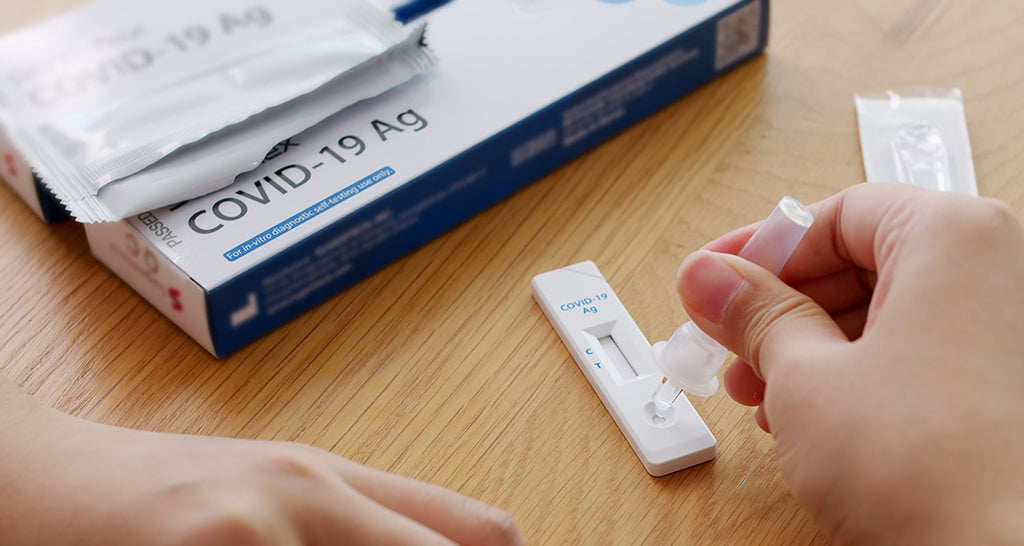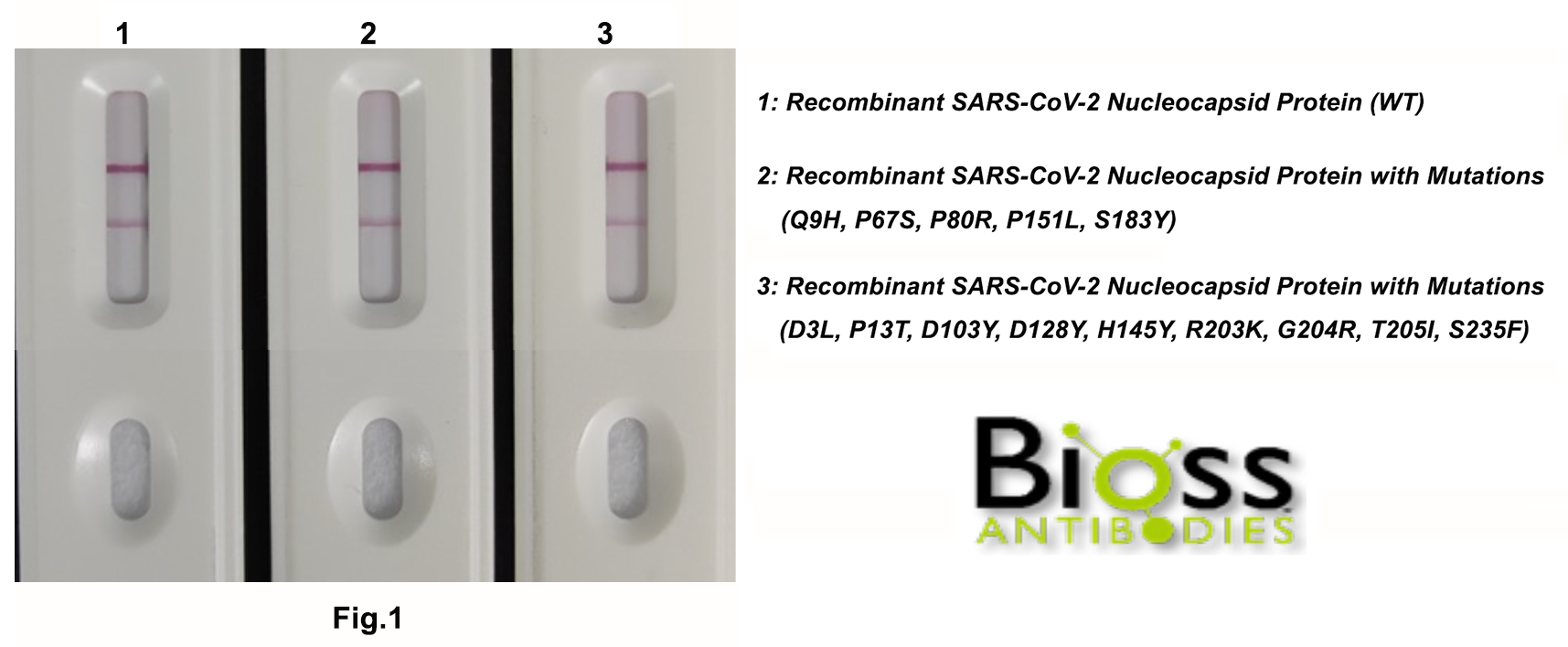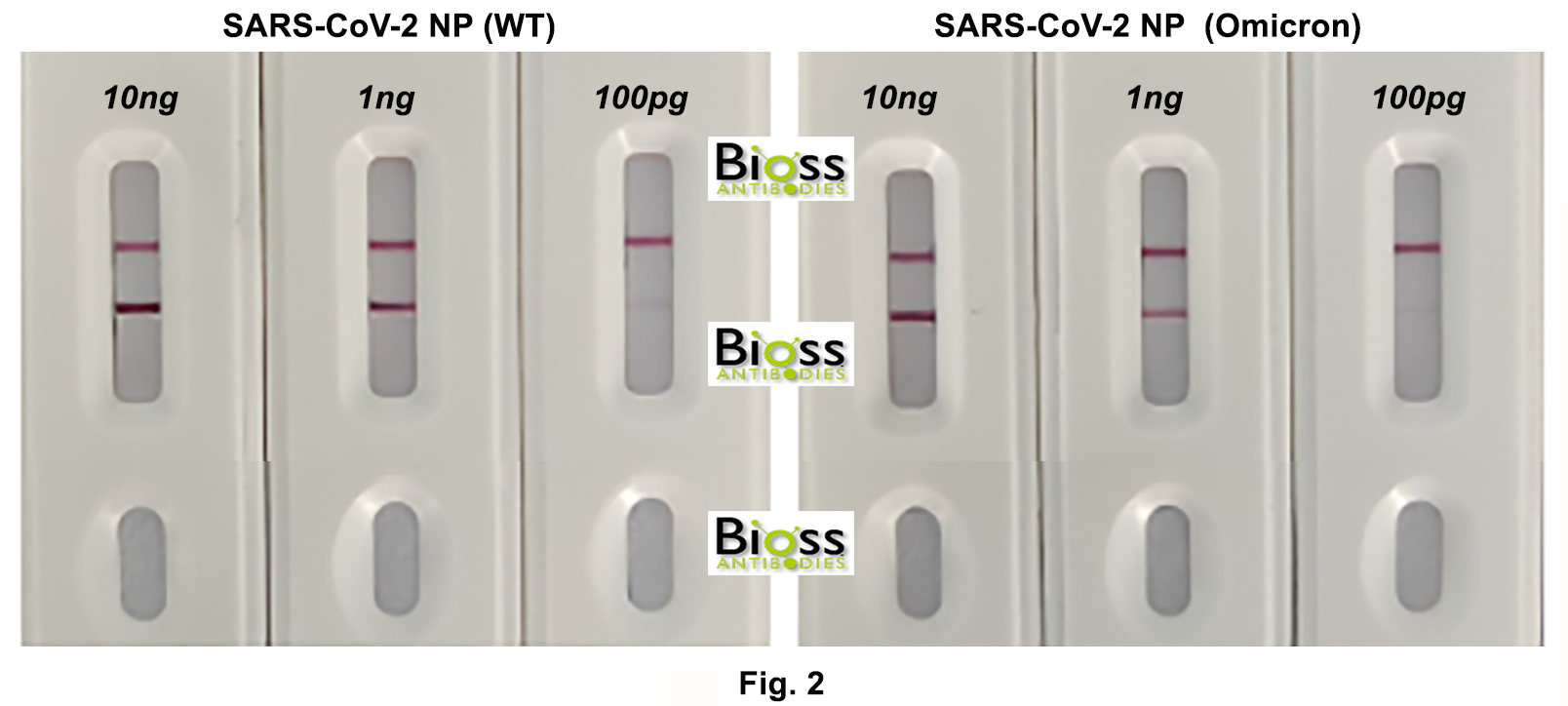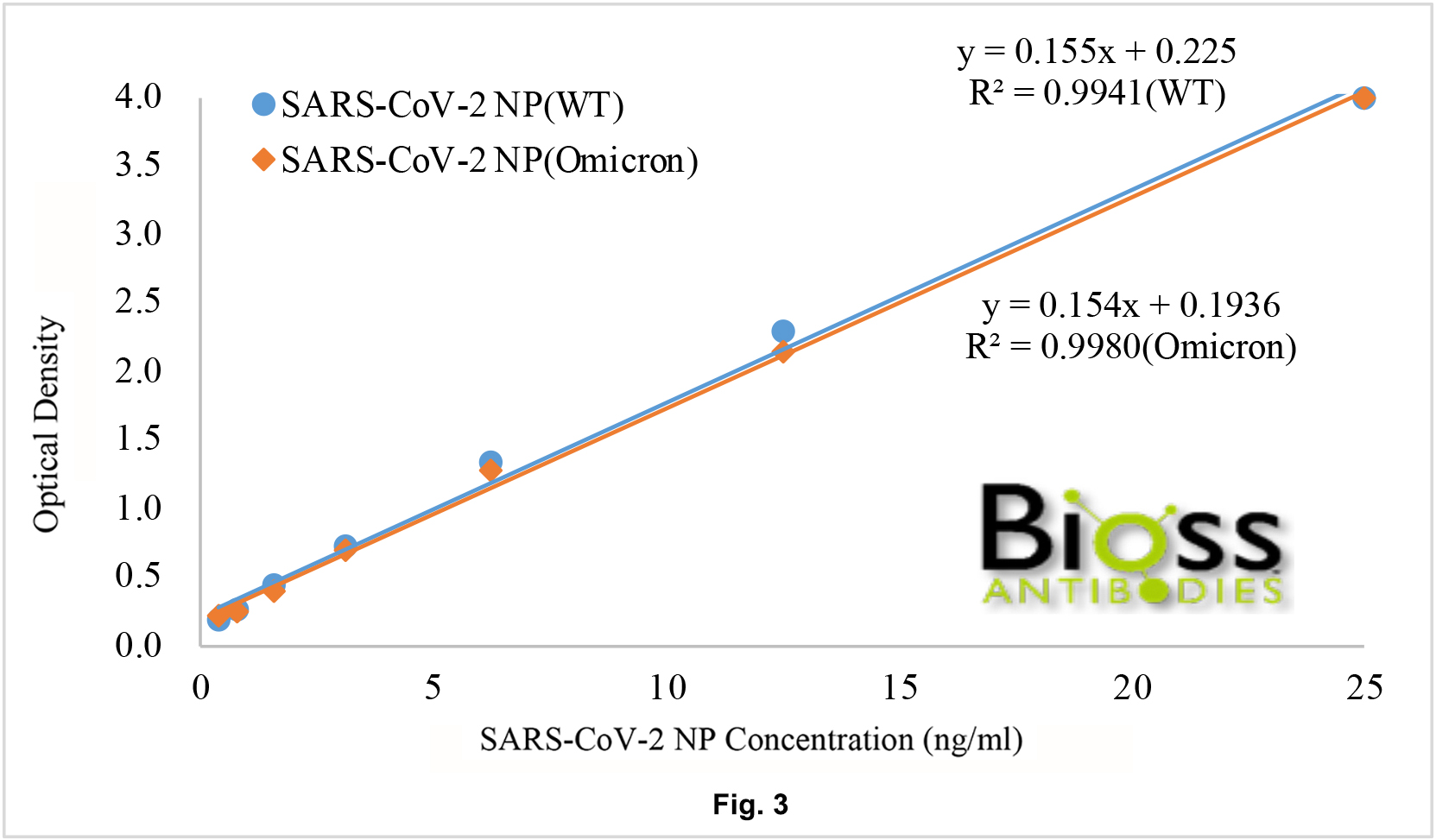Bioss developed a matched antibody pair to efficiently detect Omicron Nucleocapsid proteins
South Africa detected a new coronavirus B.1.1.529 variant for the first time on November 9, 2021. This variant was then named Omicron and defined as the fifth "variant of concern" (variant of concern, VOC) by WHO. The Omicron variant carries an abundance of amino acid mutations. Many important mutations were reported in previous variants of Alpha, Beta, Gamma, and Delta. However, it’s still unclear how these mutations would work together to break the human immune system and show stronger transmission ability. To date, the virus strain has appeared in more than 140 nations and the testing of millions of new patients is inundating the healthcare system. To alleviate Omicron caused pressure on the healthcare system, we are more reliant on rapid at-home antigen tests to tell us if we have COVID-19.
A large number of studies showed that the nucleocapsid protein (N protein) of SARS-CoV-2 is expressed abundantly during infection and is extremely immunogenic, so many rapid at-home antigen tests were designed by using N protein as an antibody target. However, the concern is coming with the many mutations in Omicron N proteins, i.e., the Omicron variant may dampen the accuracy of current available rapid at-home antigen tests. In support of the heavy demand for Omicron antigen tests, Bioss was working round the clock to develop the matched antibody pairs and successfully found one pair of monoclonal antibodies (bsm-41511R&bsm-41481M) that can detect Omicron N proteins efficiently.
Validation using a colloidal gold-based immunochromatographic assay
The matched antibody pair can detect heavily mutated N proteins
The data in Fig.1 showed that the matched antibody pair can efficiently detect both WT and mutant N proteins under the same assay conditions.
The matched antibody pair can detect Omicron N proteins efficiently
The data in Fig.2 showed that the matched antibody pair possessed a robust ability to detect a low amount of Omicron N proteins.
Validation using ELISA (Cat. BSKV0001)
The data in Fig.3 suggested that the matched antibody pair is able to efficiently detect both WT and Omicron N proteins under the same assay conditions. This assay was carried out using Bioss ELISA kit (Cat. BSKV0001).
Products information




